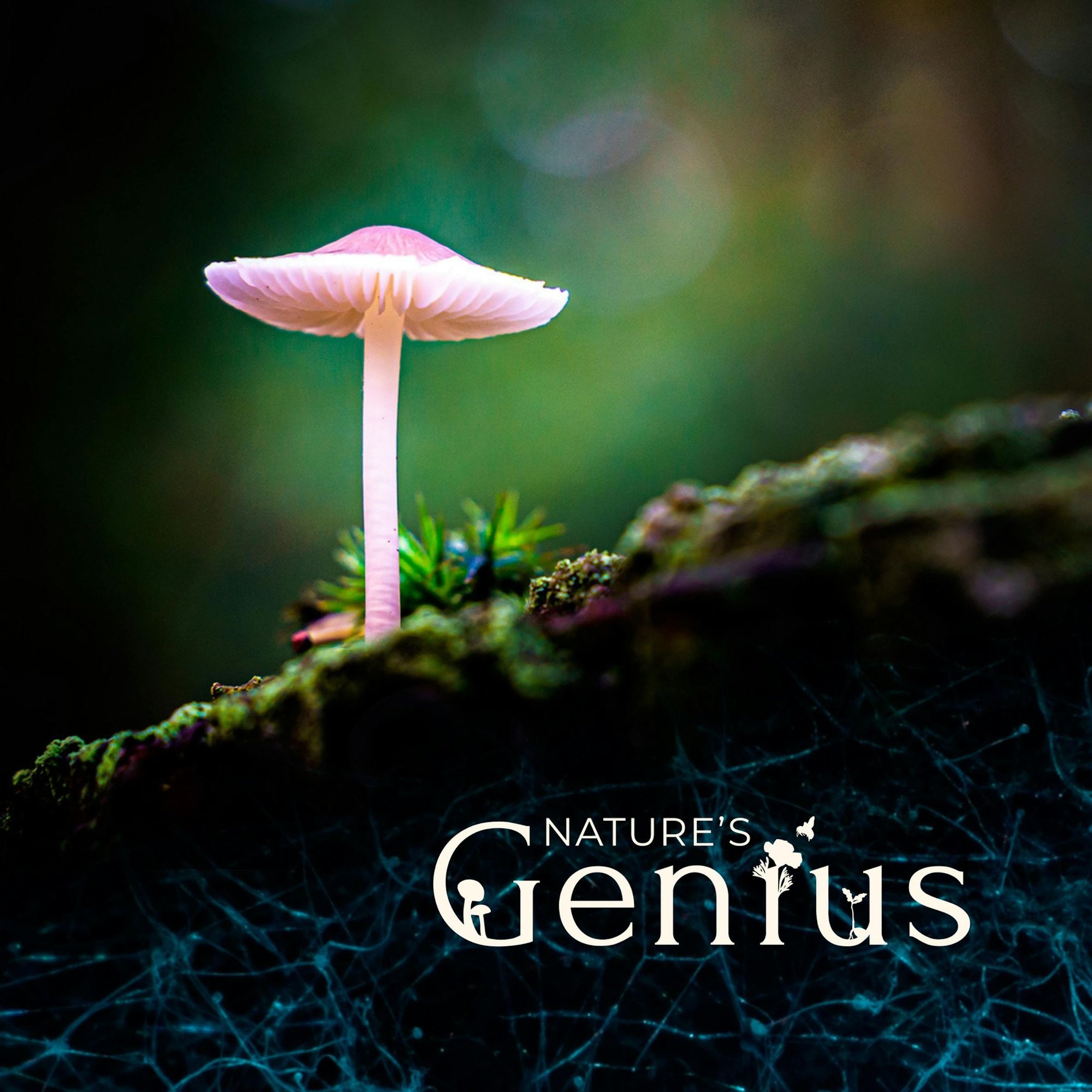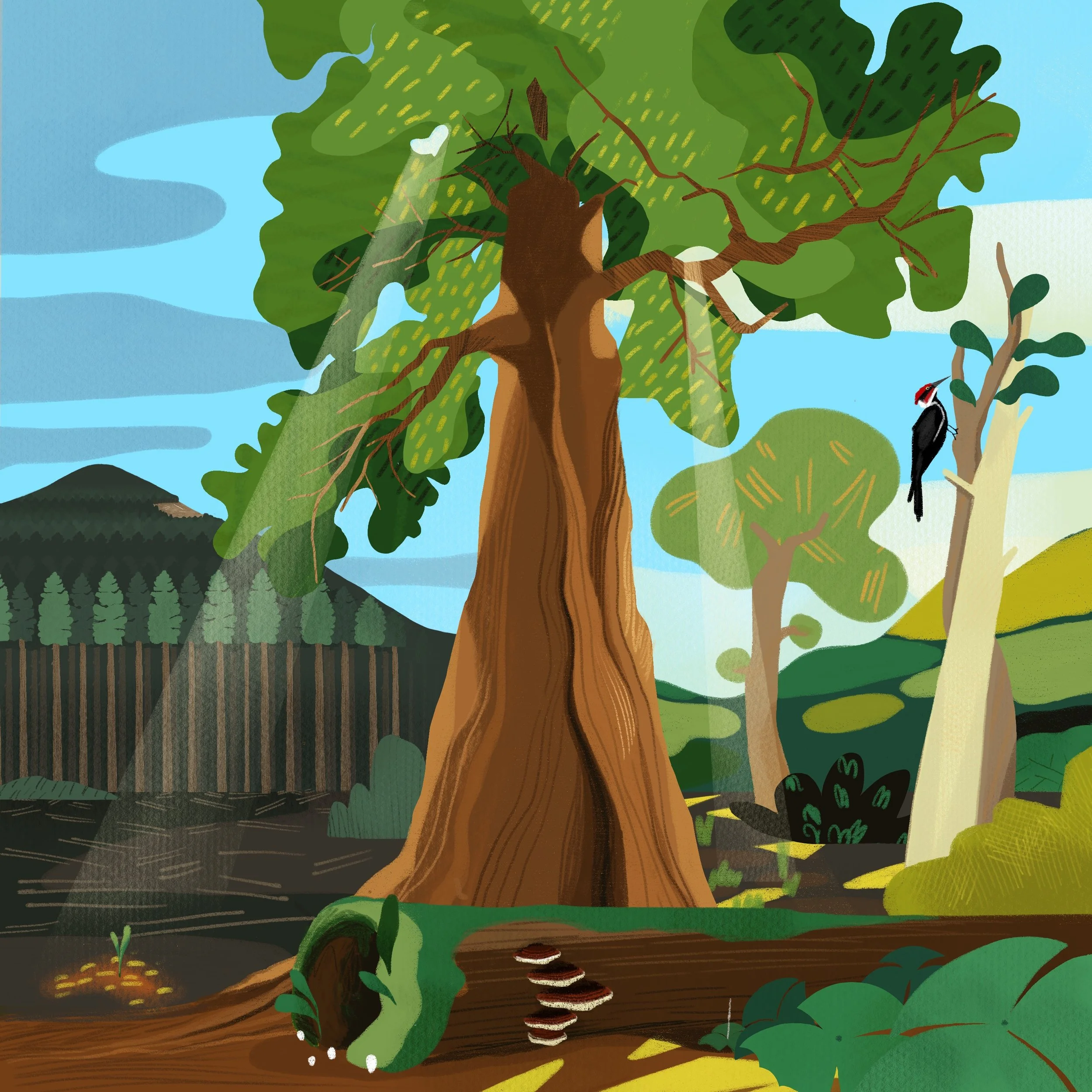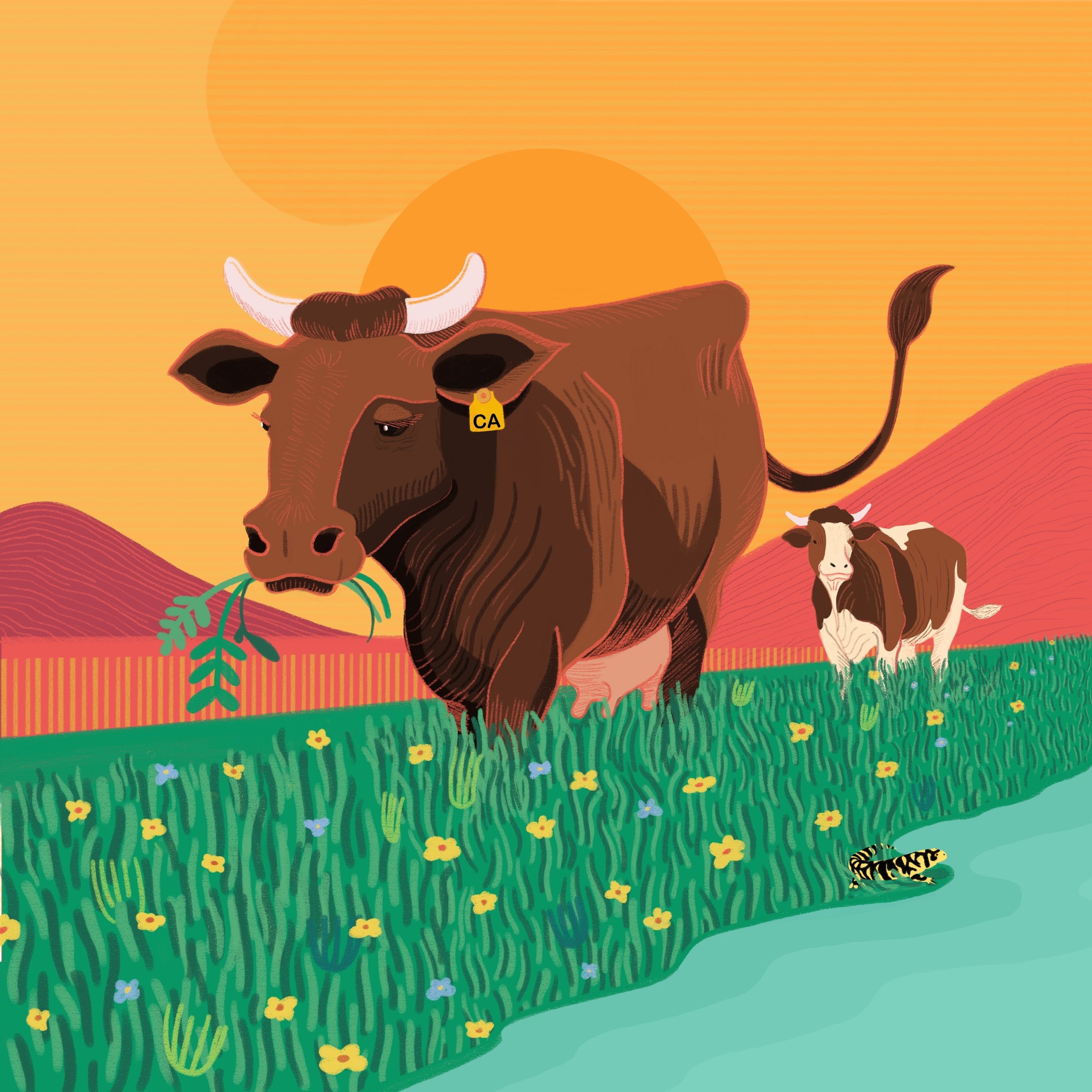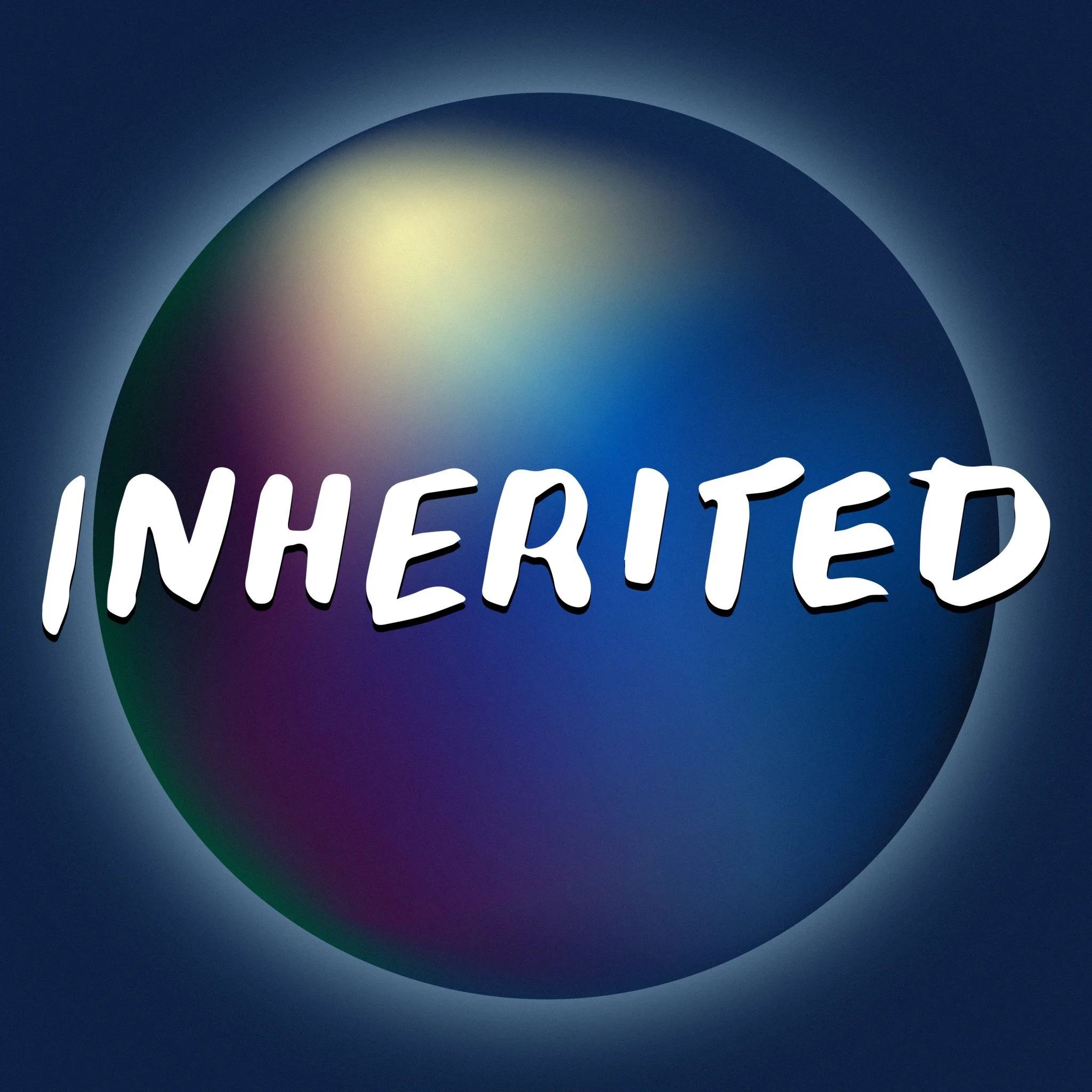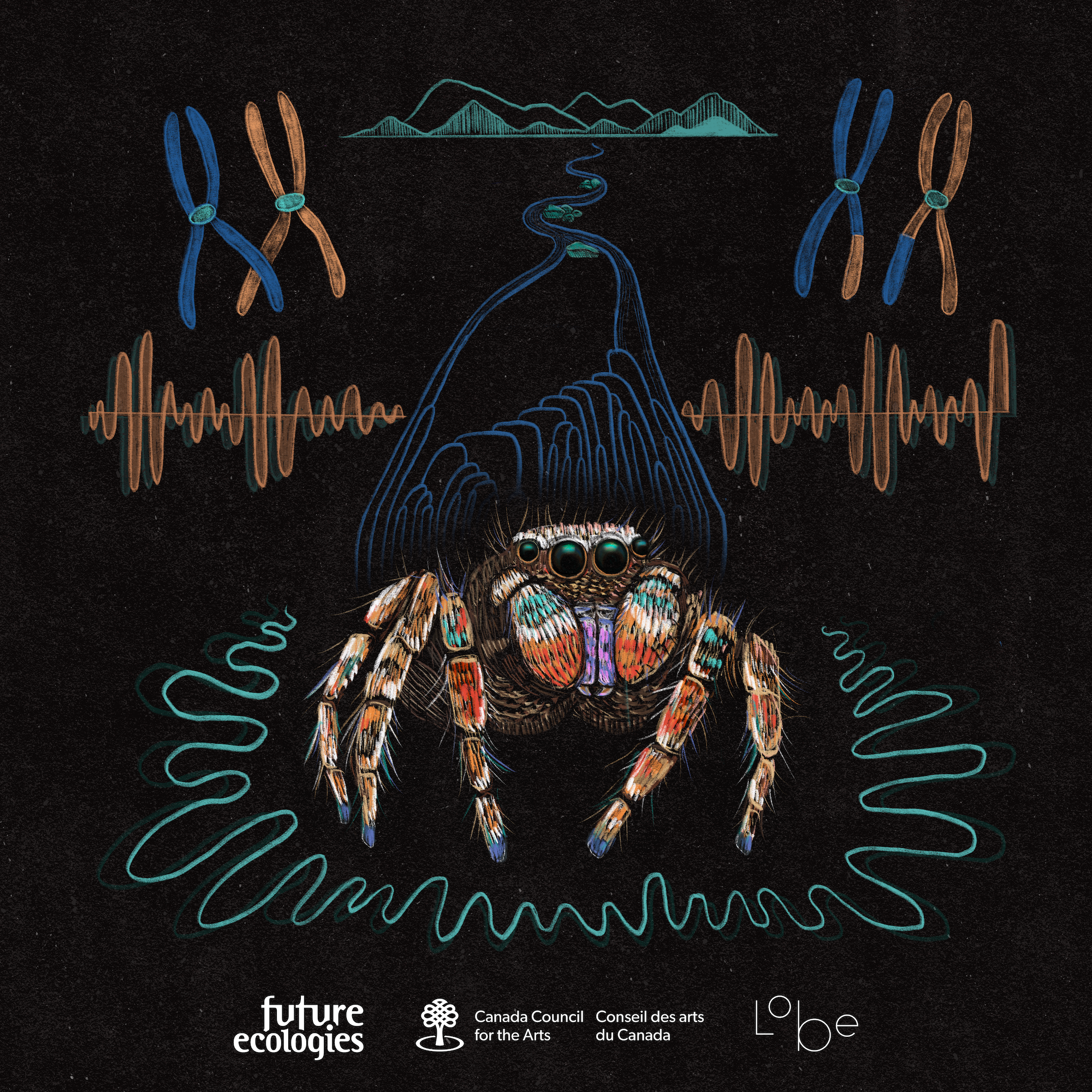Imagine an underground web of mind-boggling complexity, a bustling cosmopolis beneath your feet. Quadrillions of miles of tiny threads in the soil pulsate with real-time messages, trade vital nutrients, and form life-giving symbiotic partnerships. This is the mysterious realm of fungi. Acclaimed visionary biologists Toby Kiers and Merlin Sheldrake guide us through the intricate wonders of the mycorrhizal fungal networks that make life on Earth possible.
FE6.3 - Get Yer Ass Outta Here!
Future Ecologies presents: Hark (from Threshold)
Now in their 5th Season, "Hark", Threshold producer Amy Martin is exploring sound itself: investigating what it means to listen to the nonhuman voices on our planet — and the cost if we don’t.
FE6.2 - SEA / GARDEN
Food security, climate adaptation, and vibrant biodiversity all in one place — welcome to the ancient and diverse technologies of Sea Gardening. These widespread (but often overlooked) monumental rock features are proof positive of thriving Indigenous maricultural systems all around the Pacific Rim, since time immemorial.
FE6.1 - FOREST / TREE
Season 6 kicks off in the deep dark woods: the simplified, post-industrial forests of the world — the only forests that many of us have ever known.
Join us as we meet foresters in British Columbia, Vermont, and Scotland, all working to embrace the messy art of ecological forestry. Because if we want our forests to be old growth-ier, we might not be able to just wait and leave them alone. It might mean challenging some assumptions and getting out of our comfort zone, but that's what it'll take to see the forest for the trees.
Future Ecologies presents: The Merry Monarchs
In this piece, originally broadcast in 2 parts on The Wind (one of our favourite podcasts), producer Eleanor Qull is taking us on a pilgrimage in honour of, and in tribute to that most collective monarch — the monarch butterfly. Through those lepidopteran migrants, it’s a story of scale, agency, and spiritual offering in a changing world.
Future Ecologies presents: The Right to Feel
From UBC Centre for Climate Justice, Future Ecologies presents "The Right to Feel," a two episode mini-series on the emotional realities of the climate crisis. The first episode, “Climate Feelings” is a collection of students’ non-fiction essays and reflections on their personal realities of living with and researching the climate crisis. The first episode opens with an introductory conversation between Naomi Klein and series producer Judee Burr that contextualizes how this class was structured and the writings it evoked. The second and final episode, “Eulogies” is based on fictional writing from the class. Students imagine and eulogize something that could be harmed by the climate emergency, and then imagine a speculative future in which action was taken to mitigate that harm.
FE5.10 - Everything Will Be Vine
On this episode: Zoë Schlanger (author of the newly-released, New York Times bestselling book The Light Eaters: How the Unseen World of Plant Intelligence Offers a New Understanding of Life on Earth) takes us to the misty rainforests of Chile and back to report on what might just be the world’s most extraordinary plant — hidden in plain sight.
FE5.9 - Home on the Rangelands: Where the Deer and the Antelope Play (Part 3)
In this conclusion to our trilogy, we're looking at a proposal to move beyond the concept of "rangelands" through the rewilding of the American west — meaning, the return of forgotten landscapes, species, and ecologies not commonly seen in generations (not to mention improved water and carbon storage). But at least one thing isn't compatible with this vision: grazing cattle on public lands.
FE5.8 - Home on the Rangelands: The Beef and the Butterflies (Part 2)
FE5.7 - Home on the Rangelands: Welcome to Cowlifornia (Part 1)
Future Ecologies presents: Women's Work
We’re borrowing an episode from one of our favourite podcasters: Ashley Ahearn is the independent science and environmental journalist behind several series covering life in the rural American West.
FE5.6 - Making a Living
How do we account for nature? We can build on it and we can take from it, but what is its intrinsic value — in and of itself?
On this episode: Adam Davis (of Ecosystem Investment Partners), and a cultural transformation happening right now — reshaping the intersection of environmentalism and capitalism. Welcome to the restoration economy.
FE5.5 - On Fire: Walking on Two Legs
Meet the Fire Watchers of Skeetchestn: the people keeping their community safe during nearby wildfires, and working to bring good fire back to the land. Join us for this conclusion to our visit to Secwépemc territories as we discuss a way to bring different knowledge systems together: a synthesis of western science and Indigenous understanding.
FE5.4 - On Fire: Under Water
What happens after the smoke clears? What does recovery look like when the disasters never end? In this episode, we're visiting the sites of some of BC's biggest burns of 2017 and 2021 – making the link between the mega-fires and the floods and landslides that followed. We'll hear about how the land is (and isn't) recovering, and the factors that spell the difference.
